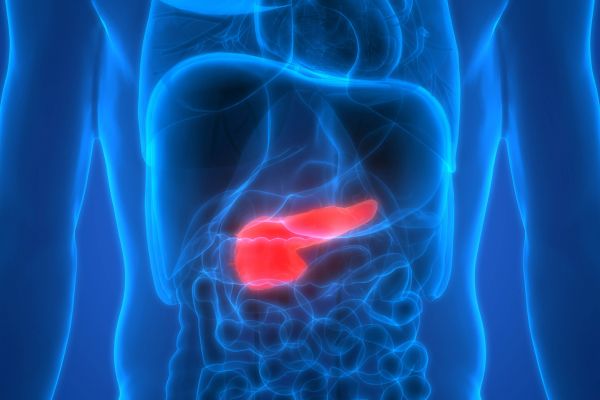Several years ago, when “Jeopardy” host Alex Trebek shared that he had stage 4 pancreatic cancer, he produced a public service announcement about the disease. “I wish I had known sooner that the persistent stomach pain I experienced prior to my diagnosis was a symptom of pancreatic cancer,” he told viewers, noting that the disease is “the only major cancer with a five-year survival rate in the single digits.”
Trebek’s willingness to talk about his diagnosis has shone a powerful spotlight on a disease that accounts for only 3% of all cancers diagnosed in the U.S. Because pancreatic cancer is rare and its symptoms don’t always raise a red flag, it’s tough to detect in the early stages. Knowing the symptoms and your risk factors is key to earlier detection.
Pancreatic cancer risk factors
You can reduce or eliminate some risk factors for pancreatic cancer. These include:
- Smoking (The risk for smokers is double that of never-smokers.)
- Being obese
- Exposure to toxic chemicals — pesticides and asbestos, for example.
- High consumption of red meat
- Having diabetes (especially type 2), which is often linked to obesity
- Having chronic pancreatitis (inflammation of the pancreas), which is more common among people who drink heavily or smoke
- Acute and lasting change of bowel habits with incompletely digested food or oily bowel movements
Other risk factors cannot be changed:
- Age: Most people who develop pancreatic cancer are over age 45.
- Family medical history: In some cases, pancreatic cancer develops due to an inherited genetic trait. If there is a strong history of pancreatic cancer in your family, you may want to find out about genetic screening and counseling at Roswell Park.
- Cysts: Some pancreatic cysts have the potential to become cancerous and need monitored at a center with experience in pancreatic conditions
Are you eligible for high-risk pancreatic screening?
Pancreatic cancer is more effectively treatable if caught early, and screening can improve the chances of early detection. Our experts will determine your personal risk and develop a screening program specifically for your needs.
Signs and symptoms of pancreatic cancer
Typical warning signs of pancreatic cancer include:
- Recent rise in blood sugar levels
- Middle back pain, unrelieved by changing position
- Non-specific belly pain
- Unexplained recent weight loss
- Jaundice (yellow color) in the skin or eyes
- Dark urine and lighter-colored stools
- Stools that float in the toilet
"The typical warning signs of pancreatic cancer are things that could easily be misdiagnosed as other ailments," says surgical oncologist Zachary Stiles, DO, MS, of Roswell Park Comprehensive Cancer Center. "However, these symptoms could mean a bile duct is blocked, which could indicate a tumor in the pancreas."
How do you know whether something as common as back pain is actually a symptom of pancreatic cancer?
"Obviously, a lot of people have back pain,” says Dr. Stiles. “A lot of people have high blood sugar, and a lot of people smoke. So if you're in a situation where any two [or more] of those signs or symptoms develop at the same time, people need to know that they could be an indication of cancer, and they should be evaluated.” It’s also important to watch out for changes over time. “If you’ve been a diabetic for a long time but recently noted a significant change in your ability to control your blood sugar without other major changes, your doctor should investigate further,” says Dr. Stiles.
It's important to note that, depending on where the tumor is located in the pancreas, pancreatic cancer can still be present without causing any of these symptoms. A significant number of these cancers can actually be found coincidentally on scans performed for other reasons. And by the time symptoms do occur, cancer may already be in an advanced stage. That’s why it’s important to see your doctor as soon as possible if you begin to experience two or more of these symptoms.
"A tumor located at the head of the pancreas could show symptoms earlier because it's causing a blockage of the bile duct, but that means the tumor is large enough for it to cause the blockage," notes Dr. Stiles. "That means there’s a chance that cancer has already spread to the surrounding tissues, such as lymph nodes or other organs. Pancreatic cancer is difficult to treat because the majority of patients already have advanced disease by the time it makes itself known.
"Chronic, prolonged changes in weight or digestion could be a warning sign of an earlier-stage pancreatic cancer. Especially if you have a history of smoking, it’s important to recognize these symptoms and get evaluated for pancreatic cancer before the disease is at an advanced state."
Getting a second opinion
You need a precise and accurate diagnosis, and a treatment plan delivered by a multidisciplinary team of experts who focus on pancreatic cancer every day.




